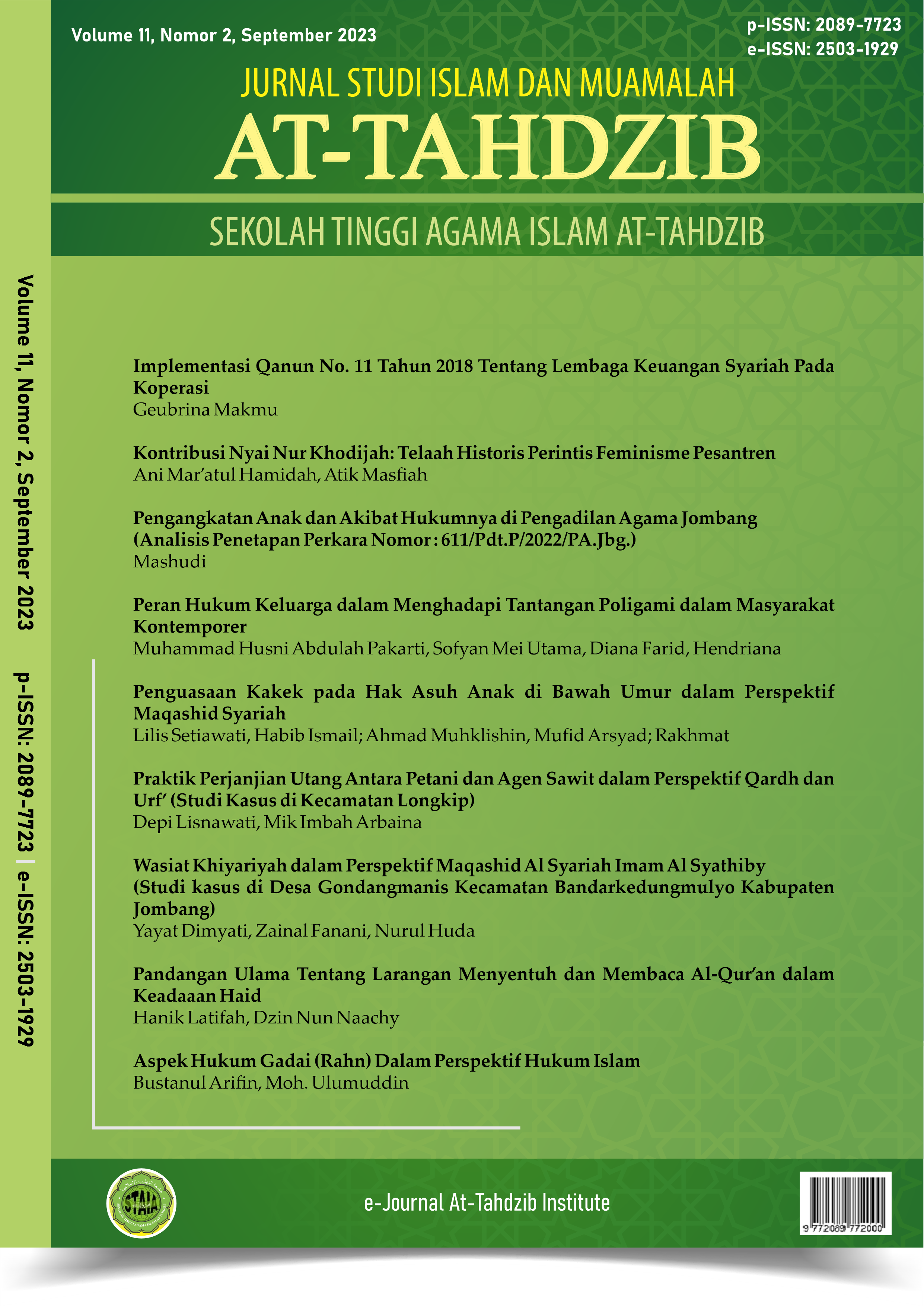Wasiat Khiyariyah dalam Perspektif Maqashid Al Syariah Imam Al Syathiby
(Studi kasus di Desa Gondangmanis Kecamatan Bandarkedungmulyo Kabupaten Jombang)
DOI:
https://doi.org/10.61181/at-tahdzib.v11i2.317Abstract
Background. This research is intended to provide an analysis of Ikhiyariyah wills in the perspective of the maqashid Syariah Imam Al Syathibi (a case study in Gondangmanis Village, Bandarkedungmulyo District, Jombang Regency). The main problems are 1). What is meant by a khiyariyah will according to the scholars? 2). What is the khiyariyah will according to maqashib Imam Al Syathibi?
Aim. After conducting an in-depth analysis, it was found that in terms of the obligatory testament, the maqashid perspective of Imam Al Syathibi and the opinions of the clergy and practice in Gondangmanis Village are in line. The opinion of the scholars stated that giving a mandatory will to adopted children or adoptive parents and not to the heirs. In Imam Al Syathibi's thought, the general rule of the first maqasid formulation is that the Shari'a is made to safeguard the benefit of the servant, both the benefit in this world and the benefit in the hereafter. The benefit of this servant includes benefit at the primary (dharuriyyat), secondary (hajiyat) and tertiary (tahsiniyyat) levels. Once the khiyariyah will that occurred in Gondangmanis Village was carried out for the benefit.
Methods. In discussing this problem the research method used is qualitative research and this type of research is field research using a phenomenological approach to qualitative research which does not require in-depth knowledge of the literature used and certain abilities on the part of the researcher.
Results. In terms of determining the number of levels of khiyariyah wills that will be obtained for those who are entitled to receive them, the ulama and the realization in Gondangmanis Village tend to be the same, namely a maximum of one third (1/3). According to maqashid Imam Al Syathibi, this is appropriate for the benefit of making Islamic law. This is done so that disharmony does not occur in the family and still maintain social relations between them.
Downloads
Published
Issue
Section
License
Copyright (c) 2023 At-Tahdzib: Jurnal Studi Islam dan Muamalah

This work is licensed under a Creative Commons Attribution 4.0 International License.




